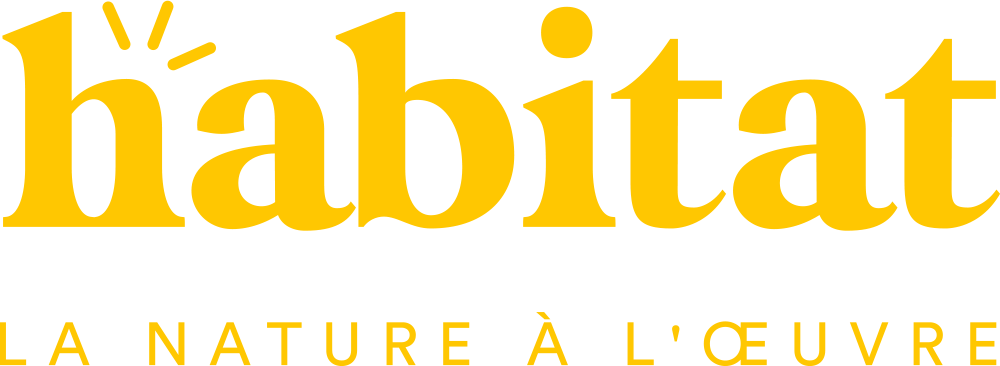Nicolet values living things - Adoption ofHabitat report and new voluntary conservation approach
Montreal, March 18, 2024 - The City of Nicolet took advantage of the enchanting setting surrounding the Hôtel Montfort to make publicHabitat 's report on the assessment of ecological connectivity and the resilience of woodlands on the city's territory. It also announces that it is initiating a process to consolidate an Ecological Connectivity Corridor through voluntary conservation on its territory. This initiative, the first of its kind in the region, is part of an approach to preserving biodiversity and adapting to climate change, in line with the city's major orientations and commitments.
An ambitious project to preserve biodiversity
The aim of the ecological connectivity corridor is to create a protected area where different species of flora and fauna can circulate freely, thereby promoting genetic diversity and maintaining local ecosystems. This ambitious project meets a crucial need in a context where the fragmentation of natural habitats compromises the survival of many species. Moreover, it is well known that natural environments provide ecological services that are essential to maintaining quality of life, particularly in a context of adaptation to climate change. "One of the City's new spheres of action is to enhance the value of living things. With the report and the conservation approach, we are moving from words to deeds and taking concrete action in this direction. It's also about human innovation. This initiative reflects the town's determination to set up a project that will benefit the whole community and strengthen the link between the population and the natural environment," emphasizes Nicolet mayor Geneviève Dubois.
Voluntary conservation at the heart of the initiative
The creation of this ecological corridor relies on the active and voluntary participation of landowners in the identified area. Running along boulevard Louis-Fréchette to the east and chemin Saint-Michel to the west, this ecological corridor is shaped like a horseshoe, with the ends joining the Rivière Nicolet. It covers an area of 1,500,000 m2 (150 hectares or the equivalent of 139 soccer fields!). It also includes an existing nearby protected area in the heart of the municipality: the Boisé-du-Séminaire and Boisé-des-Sœurs-de-l'Assomption nature reserves. The zone as a whole comprises 60 lots (22 owners), 39 of which contain fragile wetlands. Owners who so wish will be offered free guidance by the conservation organisation Nature-Avenir, which has been commissioned by the Ville de Nicolet to carry out a feasibility study for this project.
"Voluntary conservation is an initiative that consists of managing a piece of land, or a part of it, in such a way as to preserve its nature and the features recognized as being of interest to the community. Various legal options are available while remaining the owner, and I'll be happy to meet with the owners concerned to explain all this to them," explains Karine Labelle, conservation coordinator at Nature-Avenir.
Already, owners inside the corridor were contacted by mail last week in anticipation of today's press conference. This spring, they will be contacted by Karine Labelle to set up an appointment to discuss the matter. The Nature-Avenir representative will explain the contents of a guide that has been produced expressly for them, covering the various options available and reiterating the voluntary nature of the approach. In addition to containing a wealth of information, the tool that will be distributed to homeowners will also include a personalized map to help them better understand the conservation corridor issue.
Adoption of the Habitat report
In 2022, the City of Nicolet commissioned Habitat to assess the ecological value of its woodlands. The objective was to identify how to help maintain the biodiversity of Nicolet's woodlands and support connectivity between them. The study recommends conserving the woodlands that make up the ecological connectivity corridor and reforesting certain areas. The Nicolet municipal council will adopt and make public this report at its public meeting on March 18, 2024. "I salute Nicolet's innovative initiative and thank them for their confidence in entrusting us with this mandate. Nicolet is at the heart of an ecological network of regional and local importance. The establishment of an ecological corridor would make it possible to perpetuate an important movement space linking natural terrestrial environments to aquatic environments. Congratulations again on this initiative, because in addition to adopting the report, Nicolet is taking action by initiating the voluntary conservation process on its territory," says Francis Clément, Project and Operations Manager at Habitat.
Protecting one of Nicolet's last great forests
The Ville de Nicolet warmly invites the public to support this project, which will protect one of Nicolet's last large forests. "By joining this project, owners of natural environments will have the opportunity to play a key role in preserving local biodiversity and adapting to climate change, while benefiting from various advantages, such as tax incentives," says Stéphanie Dufresne, coordinator of the Ecological Transition and Social Innovation Office at the Ville de Nicolet.
The project Consolidation d'un corridor de connectivité écologique par la conservation volontaire (Consolidation of an ecological connectivity corridor through voluntary conservation) is supported by a financial contribution from the Nicolet-Yamaska RCM, as part of the Un territoire en transition project, financed by volet 3 of the Fonds région et ruralité (FRR).
About Habitat
Habitat is a Montreal-based environmental solutions company, founded by 3 university researchers. The company supports organisations by proposing nature-centered land-use strategies aimed at creating balanced and healthy ecosystems, resilient environments and a sustainable supply of ecological services.
-30-
Photo credit: A Falardeau
Press contacts :
Sébastien Turgeon
Director of Communications and Citizen Participation, City of Nicolet
(819) 293-7850
Fanny Maure
(on maternity leave)
Director of Business Development and Communications, Habitat
(514) 224-3235
fanny.maure@habitat-nature.com
Marisa Sagues
Communications and Marketing Officer, Habitat
marisa.sagues@habitat-nature.com

